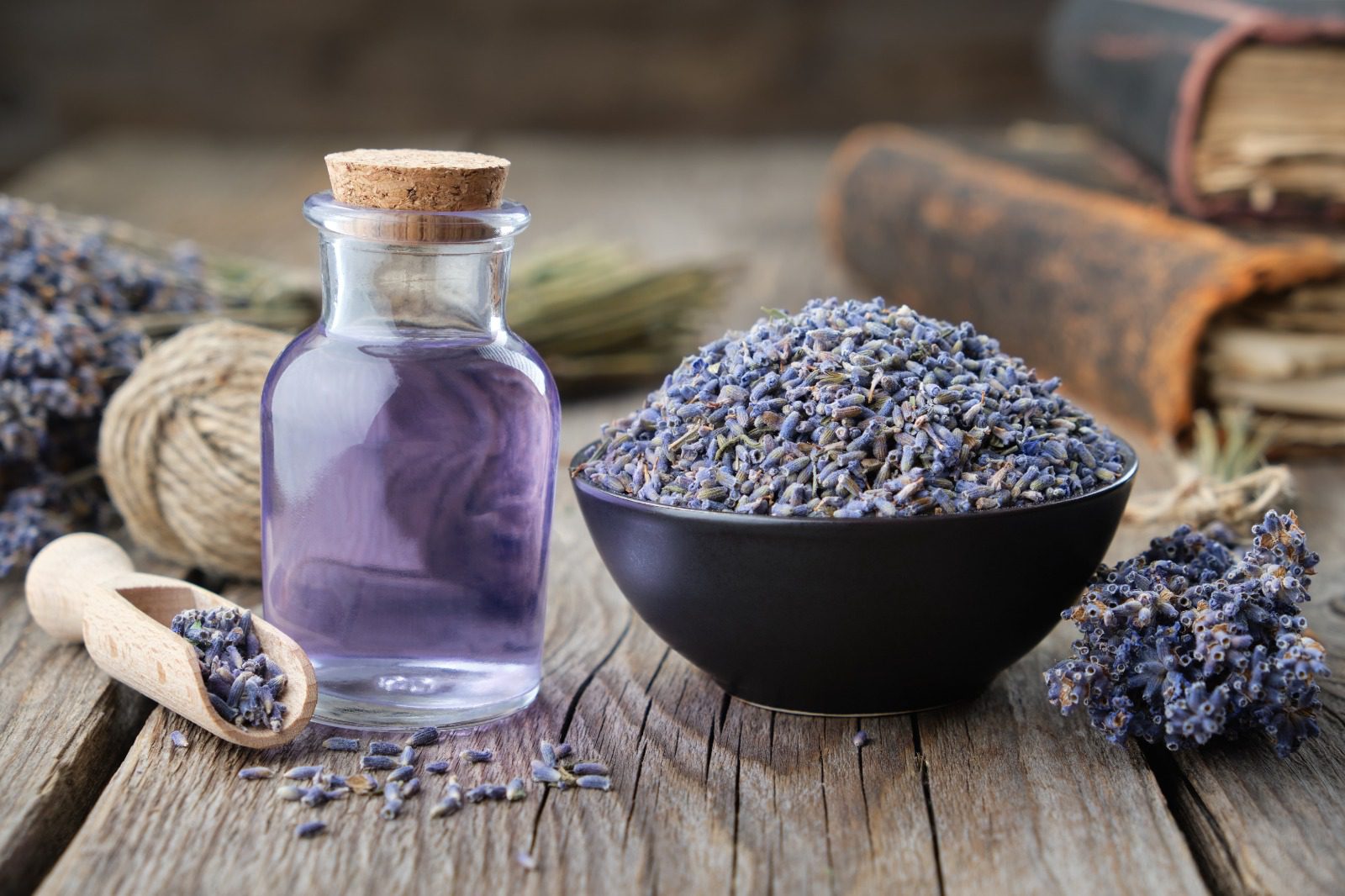
Throughout the Middle Ages, lavender continued to be cultivated and appreciated across Europe, where it was often grown in monastery gardens for its medicinal properties. Lavender became associated with healing, cleanliness, and protection against disease during this time, and it was used to make herbal remedies, potpourris, and sachets.
In the 17th century, lavender gained popularity in England. It was used to scent linens, ward off moths, and add fragrance to personal care products. Lavender cultivation expanded during the Victorian era, as its delicate blooms and soothing aroma became synonymous with romance, elegance, and refinement.
Today, lavender is a global phenomenon, cultivated and cherished in various regions worldwide, including France, Bulgaria, England, and the United States. Its applications are diverse, ranging from aromatherapy and skincare to culinary delights and decorative purposes.
Lavender’s origin is deeply intertwined with the rich tapestry of human history, where it has played a multifaceted role in culture, medicine, and daily life for countless generations. This historical significance adds depth and context to its current uses and benefits.
Few plants command as much respect and reverence as lavender in aromatherapy and natural remedies. With its delicate purple blooms and enchanting fragrance, lavender isn’t just a delight for the senses; it’s a time-honored symbol of health and well-being. From soothing stress to aiding sleep, lavender has been cherished for centuries for its therapeutic properties. Let’s delve into the rich tapestry of health benefits that this humble herb weaves:
In the midst of our modern, fast-paced lives, stress has become an all too familiar companion. Yet, many have found solace in the natural calming properties of lavender. Countless individuals have shared their experiences of feeling more relaxed and at ease after incorporating lavender into their daily routine. The scent of lavender, shown to reduce cortisol levels, the stress hormone, can create a tranquil atmosphere conducive to unwinding after a long day.
Are you struggling to get a good night’s sleep? Lavender might be the scientifically backed solution you’ve been searching for. Research suggests that the scent of lavender can enhance sleep quality by promoting relaxation and easing insomnia symptoms. Whether through a lavender-infused pillow spray or adding a few drops of lavender oil to your bedtime routine, this fragrant herb can help you drift off into a deeper, more restful sleep.
For those plagued by frequent headaches or migraines, lavender may offer much-needed relief. Its analgesic and anti-inflammatory properties make it an effective natural remedy for alleviating headache symptoms. Applying diluted lavender oil to the temples or inhaling its aroma can help ease tension and reduce the severity of headaches, providing a welcome alternative to over-the-counter pain medications.
Lavender isn’t just beneficial for the mind but a boon for the skin. Thanks to its antibacterial and antifungal properties, lavender can help cleanse and soothe the skin, making it a popular ingredient in skincare products. However, it’s important to note that lavender essential oil should always be diluted before applying to the skin, as it can cause irritation in its undiluted form. From treating acne and eczema to soothing minor burns and insect bites, lavender’s healing properties make it a versatile addition to your skincare regimen.
The uplifting aroma of lavender isn’t just pleasant; it can also positively impact mood and emotional well-being. Studies have shown that inhaling lavender essential oil can help reduce feelings of depression and promote a more positive outlook. Whether diffused throughout your home or dabbed onto pulse points as a natural perfume, lavender can lift your spirits and brighten your day.
Chronic pain can significantly impact the quality of life, but lavender may offer some relief. Its analgesic properties effectively reduce pain and discomfort associated with arthritis, muscle aches, and menstrual cramps. However, it’s important to note that lavender oil should not be ingested and may cause skin irritation in some individuals. Incorporating lavender oil into massage blends or applying it topically to affected areas can relieve persistent pain.
Lavender’s therapeutic benefits extend to respiratory health as well. Its anti-inflammatory properties can help alleviate symptoms of respiratory conditions such as asthma, bronchitis, and sinusitis. Inhaling steam infused with lavender essential oil can help clear congestion, soothe irritated airways, and promote easier breathing, providing much-needed relief during respiratory distress.
Lavender’s versatility in health benefits is as impressive as it is empowering. Whether you’re seeking stress relief, better sleep, skincare solutions, or pain management, lavender offers a natural and holistic approach to wellness. By harnessing the power of this aromatic herb, you can take control of your physical and mental well-being, one soothing breath at a time.

Beyond its physical and mental health benefits, lavender is significant in various spiritual practices and traditions. This aromatic herb has been revered for its mystical properties and symbolic significance for centuries. Here are some ways in which lavender is used in spiritual contexts:
1. Purification and Cleansing
Lavender is often associated with purification and cleansing rituals in many spiritual traditions. Burning dried lavender bundles or smudging with lavender smoke is believed to clear negative energy from a space, promoting harmony and balance. Its cleansing properties make it an ideal tool for spiritual practitioners seeking to create sacred environments for meditation, prayer, or ritual ceremonies.
2. Protection and Warding Off Negative Energies
In addition to its purifying properties, lavender is also believed to offer protection against negative influences and psychic attacks. Placing sachets of dried lavender in the home or carrying lavender sprigs in a sachet or amulet can create a protective shield, warding off malevolent energies and promoting a sense of safety and security.
3. Enhancing Psychic Abilities and Intuition
Lavender is often used by those seeking to enhance their psychic abilities, intuition, and spiritual awareness. The calming and centering effects of lavender can help quiet the mind and facilitate deeper states of meditation, making connecting with one’s inner wisdom and spiritual guides easier. Incorporating lavender into meditation practices or using it as an essential oil during divination rituals can help amplify intuitive insights and spiritual guidance.
4. Promoting Love and Romance
In folklore and mythology, lavender is often associated with love, romance, and passion. Its sweet and floral scent is believed to evoke affection and desire, making it a popular ingredient in love spells and potions. Burning lavender incense or incorporating lavender oil into romantic rituals can help attract love, strengthen relationships, and foster emotional intimacy.
5. Honoring Deities and Spirits
Lavender holds symbolic significance in various religious and spiritual traditions, where it is often used as an offering to honor deities, spirits, and ancestors. Its fragrant blooms are considered sacred and are offered as tokens of reverence and devotion in rituals and ceremonies. Lavender’s association with purity, healing, and spiritual enlightenment makes it a fitting offering for connecting with divine energies and seeking blessings from the spiritual realm.
6. Ritual Bathing and Anointing
In many spiritual practices, bathing with lavender-infused water or anointing the body with lavender oil is considered a sacred act of purification and spiritual renewal. Ritual baths infused with lavender are believed to cleanse the aura, balance the chakras, and align the body, mind, and spirit, promoting inner harmony and well-being.
In essence, lavender transcends its physical properties to become a potent tool for spiritual growth, healing, and connection. Whether used in purification rituals, protection spells, or meditation practices, lavender’s aromatic essence bridges the physical and spiritual realms, inviting us to explore the depths of our souls and embrace the divine within.
Lavender’s psychological benefits are as profound as its physical and spiritual ones. Its soothing aroma and therapeutic properties have been shown to positively impact mental well-being in various ways. Here’s how lavender is utilized for psychological purposes:
1. Stress Reduction and Relaxation
One of lavender’s most well-known psychological benefits is its ability to reduce stress and promote relaxation. The scent of lavender has been found to lower cortisol levels, the stress hormone, leading to feelings of calmness and tranquility. Whether inhaled through aromatherapy diffusers, applied as an essential oil during massages, or added to bathwater, lavender can help alleviate tension and anxiety, allowing for a greater sense of relaxation and emotional balance.
2. Anxiety Relief
Lavender’s calming properties make it a valuable tool for managing anxiety and anxiety-related disorders. Research has shown that inhaling lavender essential oil or using lavender-based products can reduce symptoms of anxiety, including nervousness, restlessness, and insomnia. Incorporating lavender into daily routines, such as inhalation therapy or topical application, can provide individuals with a natural and effective way to alleviate anxiety and promote a greater sense of calm and well-being.
3. Mood Enhancement
The aroma of lavender has a mood-enhancing effect, uplifting spirits and promoting a more positive outlook. Studies have demonstrated that inhaling lavender essential oil can increase feelings of happiness and contentment while reducing symptoms of depression. Whether diffused in the air, added to personal care products, or used in massage oils, lavender can help elevate mood and enhance emotional well-being, providing a natural boost to one’s mental state.
4. Sleep Improvement
Quality sleep is essential for mental health and cognitive function, and lavender can improve sleep quality and duration. Its relaxing aroma can help calm the mind and body, making it easier to fall asleep and stay asleep throughout the night. Whether used in pillow sprays, room diffusers, or topically before bedtime, lavender promotes a restful sleep environment, allowing individuals to wake up refreshed and rejuvenated.
5. Cognitive Function and Memory Enhancement
Lavender’s aromatic compounds have been found to have cognitive benefits, including improved concentration, focus, and memory retention. Inhaling the scent of lavender during study sessions or work tasks can help enhance cognitive performance and mental clarity. Additionally, lavender aromatherapy has been shown to have a calming effect on the nervous system, which can aid in reducing mental fatigue and increasing overall productivity.
6. Coping with Grief and Loss
Lavender’s gentle aroma can provide comfort and solace during grief and loss. Its calming properties can help soothe the mind and emotions, providing a sense of peace and acceptance during periods of mourning. Incorporating lavender into rituals or practices aimed at honoring and remembering loved ones can provide support and healing for those navigating the complexities of grief.
Lavender offers many psychological benefits, from stress reduction and anxiety relief to mood enhancement and sleep improvement. Whether used in aromatherapy, skin care products, or ritual practices, lavender provides a natural and holistic approach to supporting mental and emotional well-being, helping individuals find balance and harmony.

In conclusion, lavender is not merely a fragrant flower but a versatile and potent ally for promoting holistic well-being across physical, spiritual, and psychological realms. Its therapeutic properties have been cherished for centuries, offering a natural and accessible solution for many health concerns.
From its ability to soothe stress and anxiety to its role in enhancing mood, promoting relaxation, and improving sleep quality, lavender holds a special place in natural remedies. Its gentle yet profound effects make it suitable for individuals of all ages and lifestyles, providing comfort, healing, and rejuvenation.
Whether enjoyed through aromatherapy, skin care products, spiritual rituals, or simple moments of mindfulness, lavender invites us to reconnect with the healing power of nature and cultivate a deeper sense of harmony within ourselves and our surroundings.
As we continue to explore the wonders of lavender and harness its therapeutic benefits, we may be reminded of the profound connection between mind, body, and spirit and the timeless wisdom in the natural world. Let us embrace the soothing embrace of lavender and journey towards greater health, happiness, and fulfillment, one fragrant breath at a time.

The Complexities of Tipping in the U.S.: A System in Need of Change
Tipping in the United States is so deeply ingrained in our culture that it feels almost automatic.

Exploring the Rich History and Origin of Turkish Coffee
Coffee is special in cultures worldwide, with unique rituals and traditions.

The Timeless Elegance of Friendship:Why Every Woman Needs a BFF.
In the grand tapestry of life, there exists a delicate and precious thread that weaves joy into the mundane and transforms ordinary moments into extraordinary memories.
instagram:
Error: No feed found.
Please go to the Instagram Feed settings page to create a feed.


